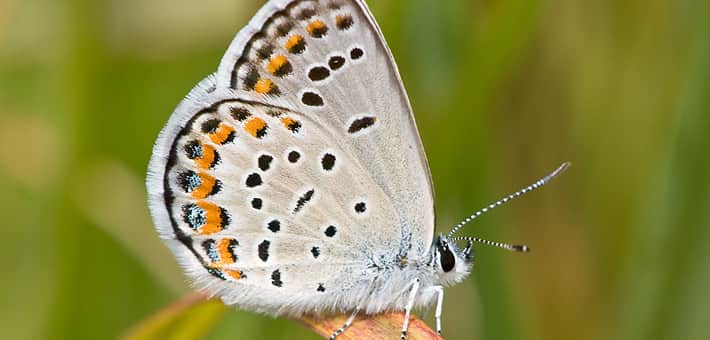U.S. Fish and Wildlife Service Awards Michigan with $864,689 in Funding to Aid Species of Greatest Conservation Need
OutdoorHub 08.28.12

The U.S. Fish and Wildlife Service today announced $864,689 in federal funding to the Michigan Department of Natural Resources to implement its “Diverse Grassland Complexes for Species of Greatest Conservation Need” competitive grant proposal. The funding total amounts to more than $1.2 million when combined with a $388,500 non-federal match from other partners.
Michigan’s Wildlife Action Plan details conservation action plans that will be implemented on at least 65 sites in the state: Its four primary objectives are to:
- Restore and enhance 400 acres of grasslands, prairies, savannas, many of which are on private lands.
- Plant 1,350 acres of native prairie grasses and forbs.
- Write conservation plans for 35 of the 65 project sites.
- Beneficially impact the Species of Greatest Conservation Need that utilize the above habitats.
The federally endangered Karner blue butterfly, along with the grasshopper sparrow, Henslow’s sparrow, and northern harrier, are among the more than 115 SGCN that will advance as a result.
These communities and species are considered conservation priorities due to their rarity, biodiversity value and their dependence on private land management. The most significant threats to grasslands in Michigan are invasive plants, altered fire regimes and landscape fragmentation. Proposed conservation actions to address these threats include exotic and invasive species control, prescribed fire, mechanical treatment, private landowner partnerships, and the establishment of habitat connections. Increased viability for the above species will result.
These competitive grants enable states to work with private landowners, conservation groups and other government agencies to initiate conservation planning efforts and acquire and protect habitat to support the conservation of threatened and endangered species.
“Michigan’s expansive proposal is an innovative solution that will undoubtedly beneficially impact the region,” said the Service’s Midwest Regional Director Tom Melius. “This is a clear opportunity to implement a conservation plan that will secure the future of the Species of Greatest Conservation Need like the Karner blue butterfly. For that, I would like to thank all of our partners for their efforts and contributions.”
Conservation partners for this proposed work include the Michigan Chapter of The Nature Conservancy, Michigan Pheasants Forever, Ducks Unlimited, the National Wild Turkey Federation and the Michigan Natural Features Inventory.
More information on the Wildlife and Sport Fish Restoration Program in the Midwest is available at: http://www.fws.gov/midwest/wsfr/ and http://wsfr75.com/

